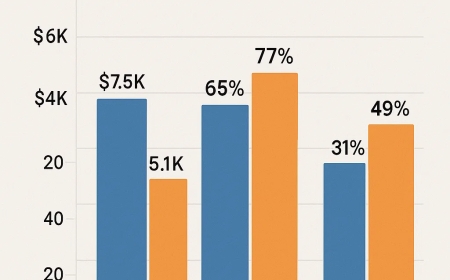How Mebendazole Works to Eliminate Parasitic Infections

Parasitic worm infections, or helminthiases, are a widespread global health issue, particularly in developing countries with poor sanitation. These infections are caused by intestinal worms such as pinworms, roundworms, whipworms, and hookworms, which can disrupt digestion, cause malnutrition, and lead to serious complications if untreated. One of the most trusted and commonly prescribed medications for treating these infections is Mebendazole over the counter.
Mebendazole is a broad-spectrum anthelmintic (anti-worm) medication that works by targeting and killing parasites in the intestines. In this article, we explore how Mebendazole works, its mechanism of action, uses, dosage, and what to expect during treatment.
What Is Mebendazole?
Mebendazole is a synthetic benzimidazole derivative first developed in the 1970s. It is included in the World Health Organizations List of Essential Medicines due to its high efficacy and safety profile. It is primarily used to treat infections caused by:
-
Pinworms (Enterobius vermicularis)
-
Roundworms (Ascaris lumbricoides)
-
Hookworms (Ancylostoma duodenale and Necator americanus)
-
Whipworms (Trichuris trichiura)
Mebendazole is typically administered as a tablet or chewable tablet, available over the counter or by prescription depending on local regulations.
How Mebendazole Works: Mechanism of Action
Mebendazoles effectiveness lies in its ability to disrupt the essential functions of parasitic worms, rendering them unable to survive or reproduce. Heres how it works:
1. Inhibits Microtubule Formation
Mebendazole binds to tubulin proteins in the intestinal cells of the worm, which are essential for forming microtubules. Microtubules are structural components of the cell that play a vital role in nutrient uptake, cell division, and intracellular transport.
By preventing microtubule formation, Mebendazole disrupts the worms ability to absorb glucose its main source of energy.
2. Starves the Parasite
Without glucose, the parasite cannot generate ATP (adenosine triphosphate), the energy currency of the cell. This energy deprivation leads to the worms death, typically within 2 to 3 days of treatment.
3. Localized Action in the Gut
One of the most beneficial aspects of Mebendazole is that very little of the drug is absorbed into the bloodstream. Instead, it remains in the gastrointestinal tract, targeting the worms directly in their habitat. This localization minimizes side effects and increases efficacy against intestinal parasites.
How Quickly Does Mebendazole Work?
In most cases, Mebendazole starts working within a few hours of ingestion, but visible improvement may take 13 days depending on the severity of the infection. Dead worms are typically expelled through the stool, though in many cases they may not be visible.
For pinworm infections, a single dose is often sufficient, while for other worm types, a 3-day course may be recommended.
Dosage and Administration
Dosage can vary based on the type of worm and the patients age:
-
Pinworms: A single 100 mg dose, repeated after 2 weeks if reinfection is suspected.
-
Roundworms, whipworms, hookworms: 100 mg twice daily for 3 days.
Mebendazole can be taken with or without food and does not usually require fasting or laxatives.
Re-treatment and Prevention
Parasitic infections are often highly contagious, especially among children. Reinfection can occur easily through contaminated surfaces, hands, or food. For this reason:
-
Entire households may be advised to undergo treatment.
-
A repeat dose after 2 weeks is often recommended to kill any newly hatched worms.
-
Good hygiene practices such as handwashing, trimming nails, and washing bedding are essential to prevent recurrence.
Side Effects of Mebendazole
Mebendazole is generally well-tolerated, especially in single-dose treatments. However, possible side effects include:
-
Abdominal pain
-
Diarrhea
-
Gas or bloating
-
Mild nausea
In rare cases, especially with prolonged high-dose use, it can cause:
-
Liver inflammation
-
Allergic reactions (rash, itching)
-
Bone marrow suppression (very rare)
Always follow medical guidance for safe use.
Special Considerations
-
Pregnancy and Breastfeeding: Mebendazole is generally not recommended during the first trimester of pregnancy unless the benefits outweigh the risks. It is considered relatively safe during breastfeeding.
-
Drug Interactions: Mebendazole may interact with certain medications such as cimetidine (used for ulcers), which can increase its absorption. Always inform your healthcare provider about other drugs you are taking.
-
Resistance: While resistance to Mebendazole is rare, it has been reported in regions with widespread, repeated use. Rotating with other antiparasitic medications like albendazole may be considered in such cases.
Global Health Importance
In many low-income countries, deworming programs use Mebendazole to reduce the burden of parasitic infections among children. These programs improve nutritional status, school performance, and overall well-being, making Mebendazole a vital tool in public health.
Conclusion
Mebendazole is a powerful and reliable medication for treating a wide range of intestinal worm infections. Its targeted mechanism disrupting glucose uptake and starving the worms makes it both effective and fast-acting. With minimal side effects and high success rates, Mebendazole continues to be a cornerstone in the fight against parasitic infections, especially in vulnerable populations. However, as with all medications, it should be used responsibly and under the guidance of a healthcare provider.








&srotate=0)























/assets/production/practices/d3eb2cb997dab7b074b251ed3fbc393d54698f2b/images/2771321.jpg)



